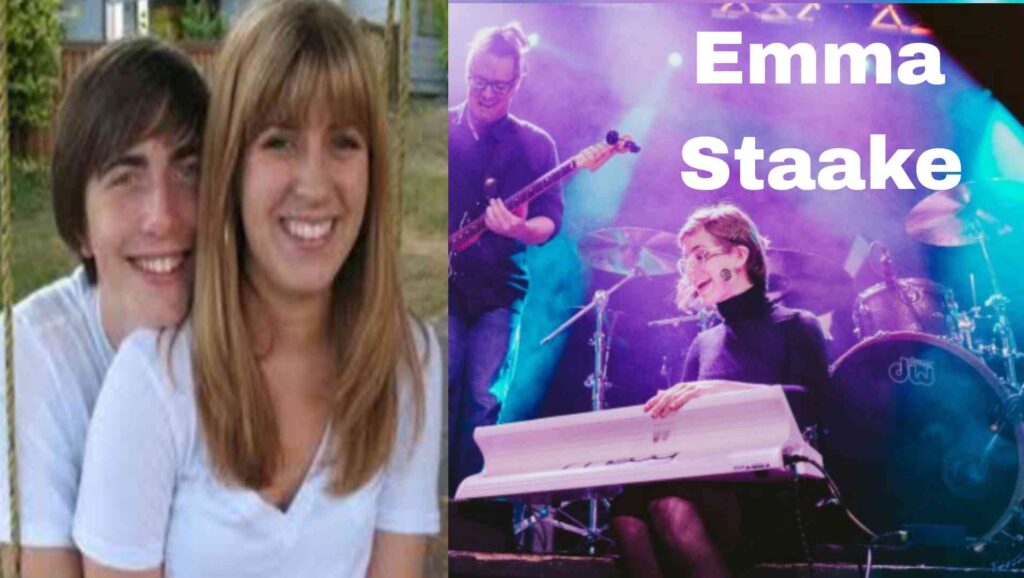Emma Staake is an accomplished writer, editor, and creative mind known for her humorous, thoughtful, and deeply engaging content across various digital platforms. Her work has appeared in respected publications such as BuzzFeed, where she contributed witty articles and lifestyle pieces that resonated with a wide audience. In the broader context of entertainment, Emma Staake represents a voice that understands both the cultural pulse and the individual need for connection through laughter, storytelling, and relatability. This article explores the purpose of entertainment, using Emma Staake’s unique style and contributions as a case study in how entertainment shapes our experiences, offers comfort, and brings people together in the digital age. As content creators like Emma Staake evolve with audience expectations, their role in shaping public discourse and emotional engagement becomes even more critical.
Understanding Entertainment in Modern Society
Entertainment has always been a vital part of human existence. From ancient theater and oral traditions to the age of digital media and TikTok trends, the purpose of entertainment has remained fundamentally the same: to engage, delight, inform, and sometimes challenge. Emma Staake, with her clever commentary and punchy writing, exemplifies this modern transformation. As consumers of content, we look for entertainment that not only distracts but also reflects our identities, opinions, and shared cultural experiences. Whether it’s a viral article, a meme, or a binge-worthy series, entertainment helps us make sense of the world around us. It offers temporary relief from the stresses of daily life and gives us permission to laugh, cry, and feel. Through writers like Emma Staake, who blend humor with insight, we’re reminded that entertainment is not just about passing time—it’s about shaping how we experience time itself.
The Role of Storytelling in Entertainment
Storytelling lies at the heart of every form of entertainment. From books to movies, articles to stand-up comedy, narratives give shape to our emotions and imagination. Emma Staake uses storytelling masterfully, even in short digital pieces, often weaving humor into real-life observations. Her writing resonates because it tells stories that feel familiar yet fresh—stories that reflect our daily absurdities and occasional insights. Good storytelling, like hers, bridges the gap between simple amusement and meaningful reflection. We become emotionally invested in characters, situations, or even punchlines, and in doing so, we’re drawn closer to our own humanity. Whether it’s a quirky life hack or a satire of modern trends, the stories we consume serve to entertain and validate our feelings. Emma Staake’s contribution to storytelling within digital media shows how a well-told story—even a brief, funny one—can have a lasting impact on its audience.
How Emma Staake Bridges Humor and Insight
Emma Staake is not just a humorist—she’s a commentator who cleverly uses comedy to highlight truths about life, culture, and society. One of her most powerful tools is irony. By exaggerating the ordinary or putting a spotlight on social behaviors, she creates space for laughter while encouraging readers to think more critically. This blend of humor and insight defines her as more than a content creator; she’s a modern satirist. Entertainment becomes purposeful when it can provoke thought as well as a chuckle. Staake’s work does just that. Through lists, quips, and punchy observations, she makes people laugh—but also think. Whether tackling social awkwardness, millennial habits, or workplace humor, her content elevates entertainment from mindless amusement to reflective joy. This fusion of wit and wisdom is crucial to understanding why people turn to entertainment: not just to escape reality, but to better understand it.
Emotional Relief and Escapism: The Core of Entertainment
One of the core purposes of entertainment is to offer emotional relief. Life is unpredictable, stressful, and sometimes overwhelming. Entertainment offers an escape, a momentary distraction that allows the mind and heart to rest. Emma Staake’s content often plays into this role. Her humorous takes on everyday life provide a dose of levity, a momentary break from the seriousness of the world. Whether through an article poking fun at workplace culture or a sarcastic take on lifestyle trends, her work invites people to exhale. Escapism isn’t about avoiding problems—it’s about creating space to breathe. Entertainment helps us return to our responsibilities with renewed energy. Writers like Staake understand this instinctively. They create with empathy, understanding that sometimes what people need most is a reason to smile. Emotional relief, especially when shared through relatable content, strengthens our resilience and reminds us we’re not alone in our experiences.
Entertainment as a Tool for Education
Another powerful aspect of entertainment is its capacity to educate without feeling like a lecture. When humor is used intelligently, it can introduce complex topics in a more accessible and engaging way. Emma Staake often embeds educational elements in her humor—whether it’s cultural commentary, social critique, or observational analysis. Her writing becomes a tool through which readers can learn about themselves and the world in a non-intimidating format. This is particularly important in an age where attention spans are short, and people are constantly inundated with information. Infotainment—where information meets entertainment—makes learning enjoyable. From satire to parody, entertainment can influence opinions and broaden perspectives subtly but effectively. Staake’s pieces serve as micro-lessons that stick with the reader because they evoke laughter and reflection simultaneously. In this way, entertainment becomes not only enjoyable but also enlightening, helping society stay informed while feeling entertained.
Building Social Bonds Through Shared Experiences
Entertainment also serves a powerful social function—it brings people together. Shared laughter, debates over TV shows, viral articles—these experiences become cultural touchstones that connect us across backgrounds and boundaries. Emma Staake’s work often plays a role in these shared moments. A funny article passed between coworkers or a meme-worthy observation becomes a bridge of understanding. In our digital lives, where isolation is common, entertainment offers connection. It provides topics for conversation and moments of collective joy. When people laugh at the same joke or relate to the same observation, they feel less alone. Emma Staake’s humor has this effect—it feels personal yet universal. That duality strengthens social bonds, even in virtual spaces. As entertainment becomes more participatory—through comments, shares, and memes—creators like Staake foster a sense of community. The ability to connect through content is one of entertainment’s most lasting and meaningful impacts.
Media Platforms and the Democratization of Entertainment
The rise of digital media has revolutionized how we consume and create entertainment. Platforms like BuzzFeed, Medium, YouTube, and TikTok have given voice to a new generation of creators. Emma Staake emerged in this wave, using accessible platforms to reach wide audiences. This democratization of entertainment means anyone with a clever idea and a smartphone can make people laugh or think. Traditional gatekeepers—publishers, TV networks, studios—are no longer the sole arbiters of what counts as “entertainment.” Creators like Staake thrive in this ecosystem, using humor and originality to cut through the noise. The internet has become a global stage, and with that comes both opportunity and responsibility. Emma Staake’s success illustrates how quality content—especially when it combines entertainment with intelligence—can find and build its audience. The digital landscape allows for more inclusive storytelling and a more dynamic, responsive form of entertainment.
The Future of Entertainment and Content Creators
As entertainment evolves, so too do the expectations placed on content creators. Audiences today are savvier, craving authenticity, intelligence, and emotional depth. Emma Staake represents a new wave of creators who understand that humor must also feel real, relevant, and honest. The future of entertainment lies in this blend of vulnerability and creativity. With AI tools, streaming platforms, and virtual realities becoming more prominent, the space for storytelling will only expand. Yet, the human touch—like Staake’s distinctive voice—remains essential. People don’t just want to consume content; they want to feel connected to its creator. That personal resonance is what transforms entertainment into something meaningful. As we look ahead, creators who can balance humor, heart, and insight will shape how we experience entertainment. Emma Staake, with her sharp wit and relatable voice, offers a glimpse into what this future can look like.
Conclusion: Why Emma Staake’s Perspective Matters
Emma Staake’s approach to entertainment exemplifies why we turn to content not just for fun but for meaning, connection, and reflection. Her unique blend of humor, storytelling, and cultural insight captures the essence of what entertainment is meant to do—make us feel, think, and connect. As we navigate an increasingly complex world, the purpose of entertainment has never been more important. Whether providing a momentary escape, teaching us something new, or bringing us closer to others, entertainment shapes our daily lives in profound ways. Emma Staake’s contributions show that even a humorous article can carry emotional weight and cultural significance. In a landscape filled with noise, voices like hers cut through with clarity and charm. Entertainment, at its best, helps us understand ourselves and the world around us—and Emma Staake is a brilliant example of how that purpose can be fulfilled with grace and laughter.



